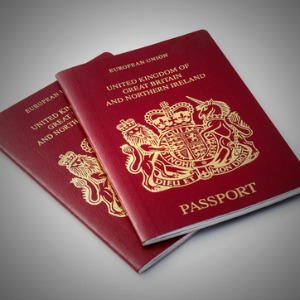A GP returning from a year abroad has been told he will have to wait three months before he take up a role at his practice, because of the red tape involved in getting back on to the UK performers list.
The GP had been offered work at a practice before he returned from a year in Australia, but has said that he was told it would take ‘at least 12 weeks’ to process the application, which he says has lost him £10,000 in earnings and has left the practice a GP short.
It comes as the RCGP and the GPC have lobbied the Government to change the rules regarding returning to the performers list, which the college says is preventing 5,000 GPs from returning and is exacerbating the workforce crisis..
In a blog for Pulse, the GP – who is going under the alias ‘GPforhire’ to protect his anonymity for fear of prolonging the delay – said that while the UK has ‘a shortage of GPs’, it has ‘no shortage of red tape’.
Coming back, he said the GMC application was ‘painless and quick’ but the performers list application has prevented him from work for several months, leading to a GP shortage in the practice that has hired him and to the loss of valuable income for the GP himself.
He tried to start the process of getting back on to the performers list while he was still in Australia, but NHS England said he had to be living in England before beginning the process, which required original utility bills and bank statements to prove his residence.
In order to remain on the performers list a GP has to do a minimum of sessions in a year, which is why GPforhire was instructed to cancel his membership upon leaving England.
Related stories
Re-registering as a GP has cost me £10k and three months of my life
5,000 GPs prevented from returning to workforce by ‘red tape’, says the RCGP
GPforhire said that when he started the application in August, NHS England told him it could take up to 12 weeks to process.
He said: ‘I was instructed at the outset that it would take up to 12 weeks to process and they wouldn’t start the process until I could prove I was living in the UK.
‘I tried my best to start some of the process in Australia but it was a no-go. They wanted two original proofs of UK residency – a UK council tax bill and utility bill or bank account. I was going to be living with my parents for the first couple of weeks whilst we looked for somewhere to live so it would be at least that long before we had rental agreement – which didn’t count anyway. I would then have to wait for the correct forms of ID to come through the post.’
‘Once I had that bit of paperwork I could start, or so I thought. They gave me the wrong form to fill in – it was for their new electronic version that wouldn’t go live until September. I also need to pay £40 by cheque or postal order – cash or online payments must be too sophisticated or something.’
The GP said he is still waiting to hear on his application and that he is expecting to have lost £10,000 in earnings when it does get approved.
He said: ‘Currently my application form is sat in another teams office now, its waiting for someone to re-read it and then it will be passed on to the medical director to sign, it gets passed back, emailed back to the first team and they write to me to let me know I can start work. I expect by the time I am finally approved to work this will have cost me at least £10,000 in lost earnings, more if you count the lost pension contributions.’
GPC deputy chair Dr Richard Vautrey said: ‘Everybody seems to recognise that this is an unnecessary bureaucratic hurdle, which shouldn’t even be there, let alone having to be crossed… yet nothing very much seems to be being done about it. I think we need to address this as soon as possible. There is a recruitment crisis and any GP who is wanting to work in the NHS and has the necessary competency to do so should be enabled to do so as quickly as possible, not having unnecessary unhelpful barriers placed in their way.
‘One of the ways that have been suggested for getting around this [problem] would be to have Skype appraisals, or some form of way of keeping doctors in touch with the NHS when they go away. For those doctors who do go away usually for a short period of time who know they will come back at some point it seems very sensible to retain that link for that period. It shouldn’t be very difficult to put that in place and that would actually save us from a lot of those problems occurring when doctors return to the UK.’
The RCGP claimed this year that it had identified 5,229 GPs under the age of 50 who have left general practice in the past five years, including more than 3,000 GPs under the age of 40.
It said that these doctors are unable to return to general practice even if they wanted to as a result of rules governing the eligibility of GPs to practise in the UK being interpreted in a ‘bureaucratic’ way, which is effectively ‘disbarring’ them from the GP workforce and exacerbating the crisis in general practice.
Click here to read the blog

















